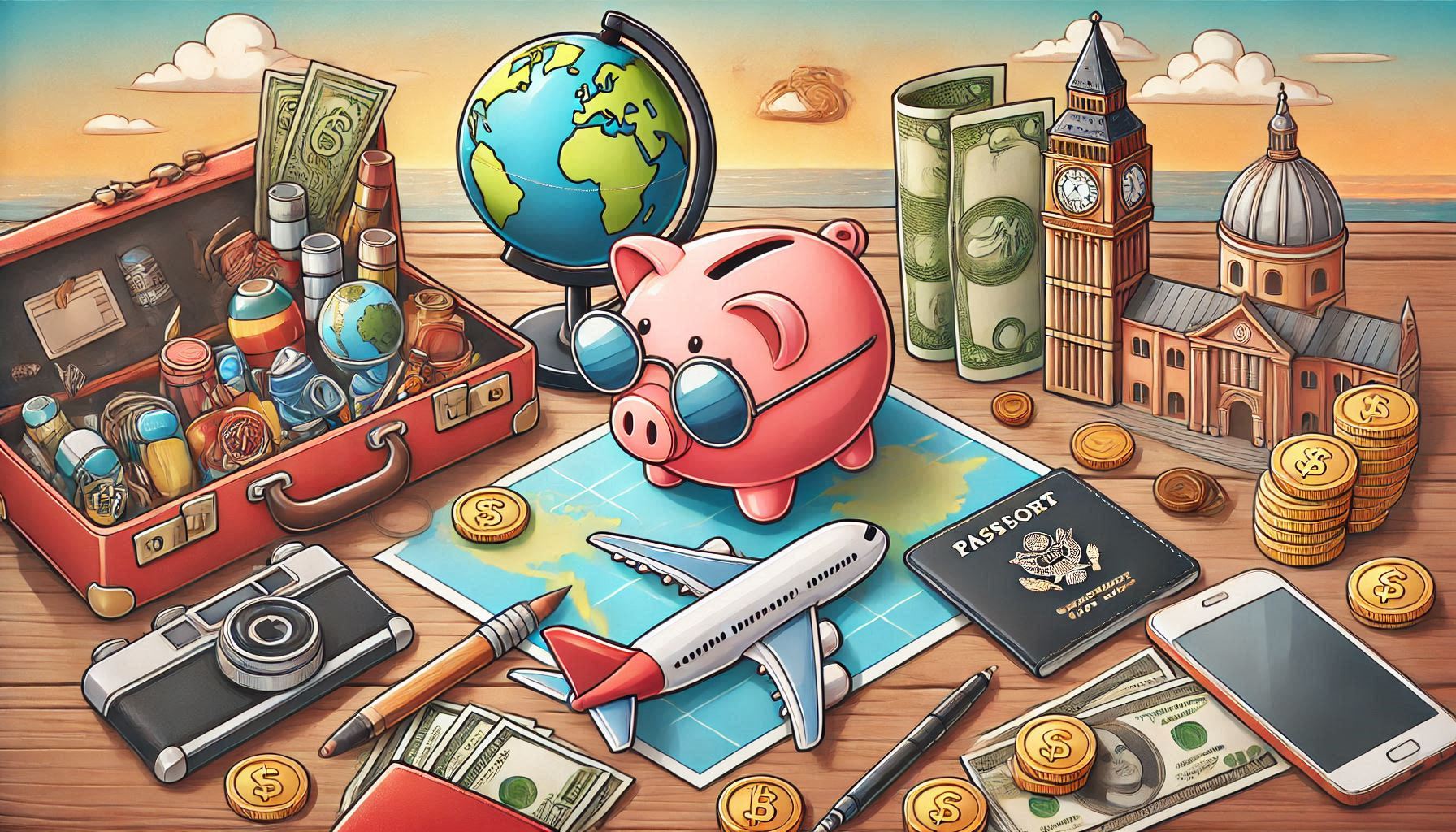Traveling doesn’t have to break the bank. With careful planning and smart strategies, you can explore amazing destinations without emptying your savings account. This article provides practical tips and tricks to help you save money on various aspects of your trip, from transportation and accommodation to food and activities.
1. Transportation Savings:
- Be Flexible with Travel Dates: Traveling during the off-season or shoulder season (the periods between peak and off-season) often means lower prices on flights and accommodation. Mid-week flights (Tuesdays and Wednesdays) are often cheaper than weekend flights.
- Book Flights in Advance (But Not Too Far): While last-minute deals can sometimes be found, booking flights a few weeks or months in advance is generally recommended, especially for popular routes. However, avoid booking too far out (more than 6-9 months), as prices can fluctuate. Use flight comparison websites (Skyscanner, Google Flights, Kayak) to find the best deals.
- Consider Alternative Airports and Transportation: Flying into smaller airports or airports located slightly outside the city center can sometimes be cheaper. Consider alternative modes of transportation such as buses, trains, or even carpooling, especially for shorter distances.
- Utilize Public Transportation: Once you arrive at your destination, utilize public transportation (buses, subways, trams) whenever possible. It’s often much cheaper than taxis or ride-sharing services. Consider purchasing a multi-day pass for unlimited travel.
- Walk or Bike: Walking and biking are not only great ways to experience a city but also excellent ways to save money on transportation. Many cities offer bike-sharing programs or bike rentals.
2. Accommodation Savings:
- Consider Alternative Accommodation Options: Hostels, guesthouses, Airbnb rentals, and homestays can offer significantly cheaper alternatives to traditional hotels. Consider the type of accommodation that best suits your needs and budget.
- Travel During the Off-Season: As mentioned earlier, traveling during the off-season can result in significant savings on accommodation.
- Look for Deals and Discounts: Many travel websites and hotel chains offer deals, discounts, and loyalty programs. Sign up for newsletters and follow travel companies on social media to stay updated on the latest offers.
- Book Directly with Hotels (Sometimes): While booking through third-party websites can sometimes offer better deals, it’s worth checking the hotel’s website directly, as they may offer exclusive discounts or packages.
3. Food and Drink Savings:
- Eat Like a Local: Avoid touristy restaurants and opt for local eateries, street food stalls, and markets. This is not only a great way to experience local cuisine but also a way to save money.
- Cook Your Own Meals: If you’re staying in accommodation with a kitchen, consider cooking some of your own meals. This can significantly reduce your food expenses. Visit local markets to buy fresh produce and ingredients.
- Take Advantage of Free Breakfasts: Many hotels and hostels offer free breakfasts. Take advantage of this perk to save on your morning meal.
- Pack Snacks and Drinks: Bringing your own snacks and drinks can help you avoid buying expensive items at tourist attractions or convenience stores.
- Take advantage of Happy Hour and Lunch Specials: Many restaurants offer discounted prices during happy hour or lunch.
4. Activity and Entertainment Savings:
- Look for Free Activities: Many cities offer free walking tours, free museums on certain days, and free parks and gardens. Research free activities in your destination before you go.
- Purchase City Passes or Discount Cards: Many cities offer city passes or discount cards that provide access to multiple attractions at a discounted price. Evaluate if these passes offer good value for your itinerary.
- Take Advantage of Free Events: Check local event listings for free concerts, festivals, and other events that coincide with your trip.
- Negotiate Prices: In some destinations, particularly in markets or with local vendors, it’s acceptable to negotiate prices.
5. Other Money-Saving Tips:
- Travel Light: Packing light can help you avoid checked baggage fees.
- Use a Travel Rewards Credit Card: Using a travel rewards credit card can earn you points or miles that can be redeemed for future travel.
- Set a Budget and Track Your Spending: Before your trip, set a realistic budget and track your spending while you’re traveling. This will help you stay within your limits.
- Be Mindful of Exchange Rates and Fees: Be aware of currency exchange rates and any fees associated with using your credit or debit card abroad. Consider using a travel-friendly credit card with no foreign transaction fees.
By implementing these money-saving strategies, you can travel more for less and make your travel dreams a reality without breaking the bank. Remember that traveling on a budget doesn’t mean sacrificing experiences; it’s about being smart and resourceful.
